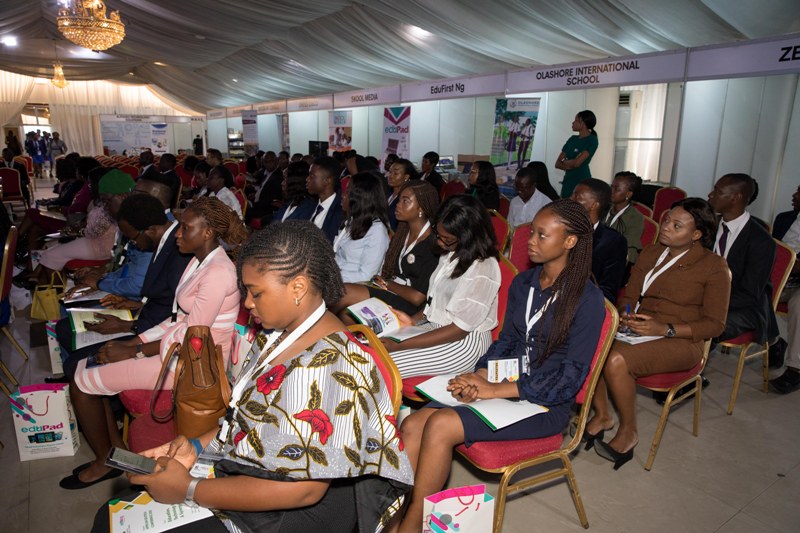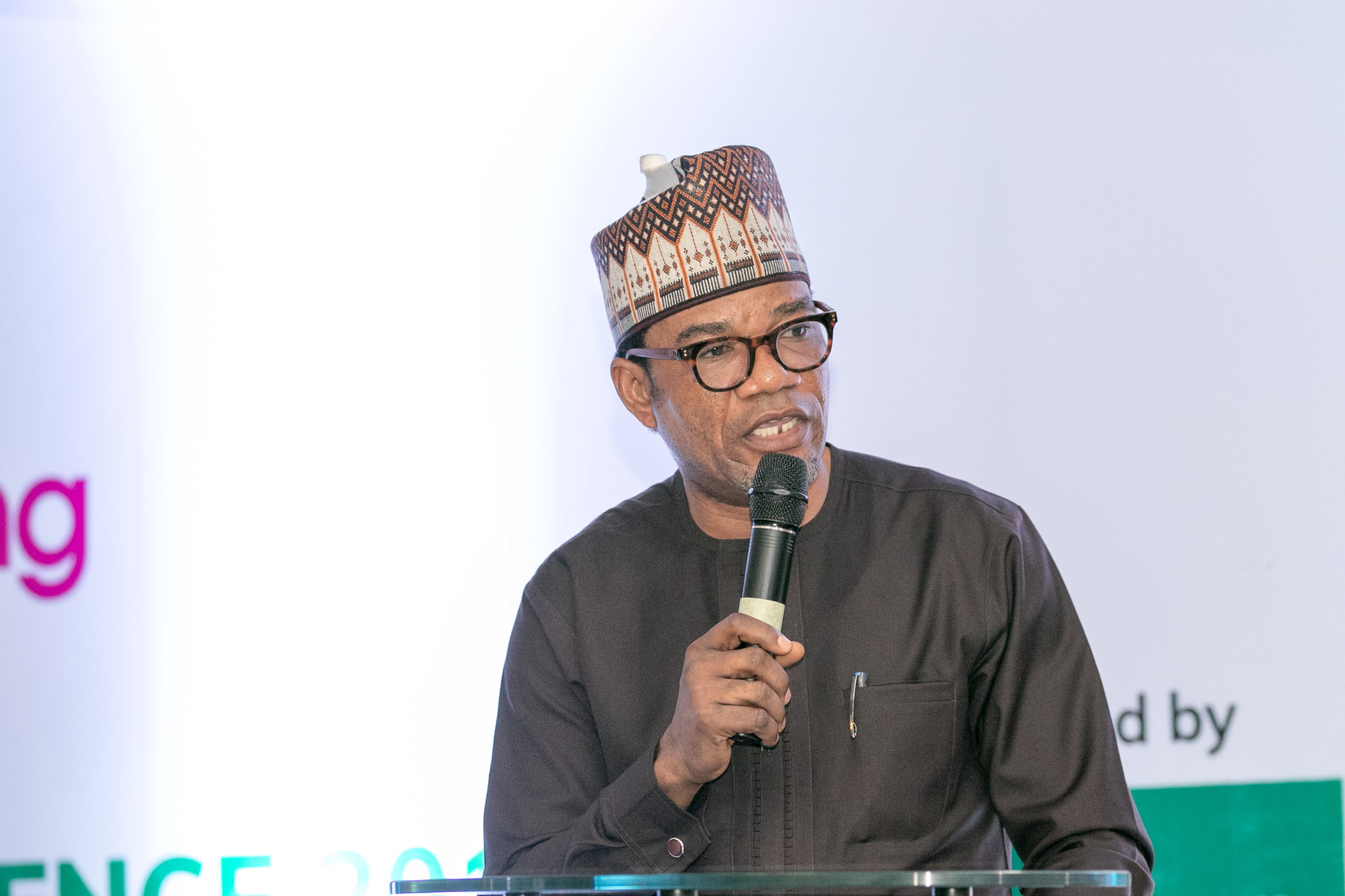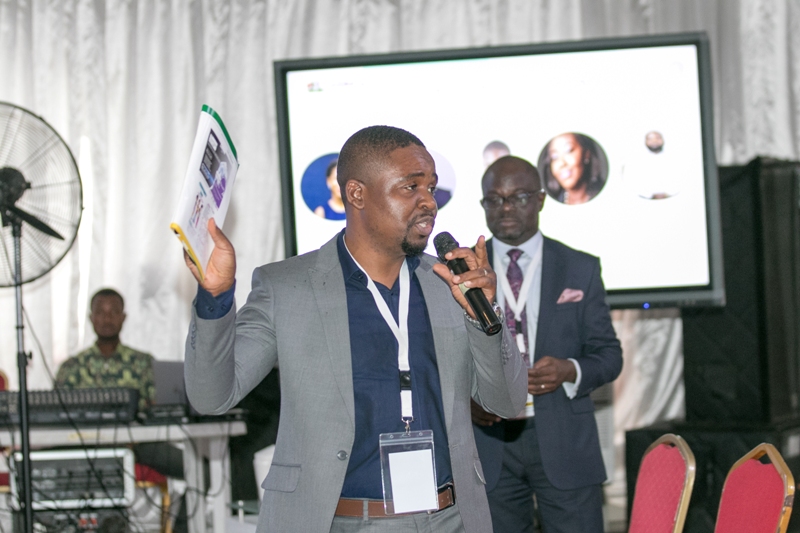
The Nigeria Communications Commission (NCC) has facilitated the creation of communication towers at some tertiary institutions through its Advanced Digital Awareness Program for Tertiary Institutions (ADAPTI) in the bid to promote internet accessibility for inclusive learning, research and development.

Not less than 300 federal and state governments owned tertiary institutions across the six geopolitical zones of the country were beneficiaries of the projects since the introduction of the ADAPTI scheme.
Executive Vice Chairman of NCC, Prof. Umar Danbatta made this known at the maiden edition of African Education-Technology Conference facilitated by the Nigerian-British Chamber of Commerce in collaboration with EduFirst.ng; a subsidiary of Skool Media in Lagos.
Danbatta said the commission designed and implemented the Advanced Digital Awareness Program for Tertiary Institutions (ADAPTI) as means to bridge the digital gaps that exist in the academia.
Over two hundred and thirty secondary schools (230) have also benefited from the program which involves the provision of computers, other ICT equipment and necessary facilities to provide lecturers, staff and students with the requisite ICT skills essential for the 21st Century digital world.
Speaking on the theme: ‘Promoting Internet Accessibility for Inclusive Learning and Development in Nigeria’, the Executive Vice Chairman brought to bear that no strategy for internet usage and adoption in educational sector can succeed without adequate infrastructure and access to resources.
He explained that internet accessibility is at the heart of digital inclusiveness and fore front of digital skill and knowledge acquisition for enabled entrepreneurial empowerment that could tame the scourge of unemployment in the country.
He said, “As a responsive world class regulatory agency, the Commission has gone beyond just internet accessibility to look at issues that have to do with the availability and affordability of internet services in the country.
 Cross section of participants at Edu-Tech Conference 2019
Cross section of participants at Edu-Tech Conference 2019
“In this regard, the Commission has undertaken several intervention programs to stimulate demand and accelerate the adoption and development of ICT tools in the country. Such programs include the wireless cloud project which provides a platform for supporting campus-wide wireless access to internet service for teaching, learning, research and development to be used by faculty staff and students of the nation’s tertiary institutions.
“Under this project, the Commission provides beneficiary institutions with the necessary infrastructure, including telecom masts, antennas, networking facilities, computer equipment, including one year bandwidth supply and maintenance support. This project has benefitted numerous tertiary institutions in the six geopolitical zones of the country.
“Access to the Internet, with sufficient bandwidth, is essential for the development of an information society. For access to be meaningful however, it must be affordable. In addition, the lecturers or teachers and students must acquire digital literacy and other skills necessary to make best use of it.

“To this end, the Commission has designed and implemented the Advanced Digital Awareness Program for Tertiary Institutions (ADAPTI) aimed at bridging the digital gaps that exists in the academia. This project involves the provision of computers, other ICT equipment and necessary facilities to provide lecturers, staff and students with the requisite ICT skills essential for the 21st Century digital economy.
“The Commission supplies computers and other ICT equipment, including scanners and printers to the beneficiary institutions. It also includes, the provision of suites of E-Learning applications for academics and students in tertiary institutions. Through this program the Commission is able to specifically provide the tools that will enable familiarity, skill development and confidence in the utilization of ICT in teaching, research and learning.
“Since its introduction in 2008, more than 300 institutions of higher learning have benefited from the program.”
Commission has licensed seven Infrastructure Companies (InfraCos) in the six geo-political Zones plus Lagos State. “The Commission has also gone ahead to design adequate subsidies to incentivize these InfraCos to deploy optic fibre infrastructure to the length and breadth of the country on an Open-Access, non-discriminatory pricing model.
“The aim is to ensure that each local government area in the country has at least one connection point which will be cascaded to the hinterlands, from there, the final mile connections will be undertaken to the final consumers.”

Earlier, the Acting President and Chairman in Council, Nigerian-British Chamber of Commerce, Mr. Kayode Falowo, said that Conference: ‘Education, Technology & Jobs; A Synergy that Works’, was convened as part of the Chamber’s mandate to support the socio-economic development of Nigeria through educational development.
He said the Chamber and African Edu-Tech platform will continue to provide the government, regulatory agencies, e.g Federal Ministry of Education, NUC, NERDC, WAEC, etc. and educational professionals, the opportunity to interact and share experiences on the revitalization of Nigeria’s education system, through the application of technology and innovation as key ingredients for educational transformation.
The Conference had in attendance the Permanent Secretary, Federal Ministry of Education, Arch. Sonny Echono; Director General, Nigerian-British Chamber of Commerce, Bunmi Afolabi; the Co-Founder and Project Coordinator at Skool Media, Moses Imayi; Digital Innovation & Country Manager, EduFirst Ng, Idris Oladipo; Principal, Olishore International School, Mr. Derrick Smith; Principal Consultant, Leading Learning Limited, Folasade Adefisayo; Teal Lead, HR Strategy & Projects, First Bank, Tomilayo Esan, among other speakers and moderators.CC
READ ALSO: Internet: Broadband Penetration Rises to 33% by February – NCC








